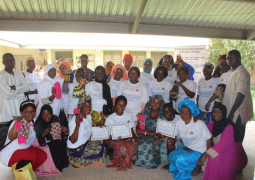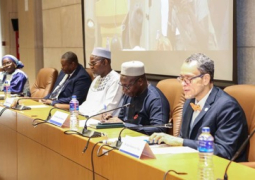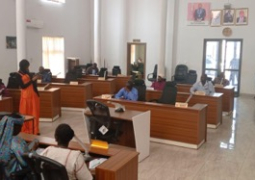
- Presidential election is a chance to strengthen respect for human rights to Gambia
- Amnesty calls on candidates to sign seven-point human rights manifesto
- Laws restricting freedoms must be overhauled
PRESS RELEASE: As campaigns begin and voters get ready to go to the polls in Gambia for December’s presidential elections, Amnesty International calls on all candidates to break with the country’s past by publicly committing to improve the human rights situation in seven key areas if elected.
The organization is launching a seven-point human rights manifesto, calling on candidates to commit to protecting the right to freedom of expression; protecting the right to freedom of peaceful assembly; fighting impunity; ending sexual and gender-based violence and discrimination against women; promoting economic, social, and cultural rights; adopting a law prohibiting torture; and abolishing the death penalty.
“The repressive regime of former president Yahya Jammeh was marked by mass arbitrary arrests, rampant torture, extrajudicial killings, and relentless persecution of dissenting voices,” said Samira Daoud, Amnesty International’s West, and Central Africa Director.
“If we have seen substantial improvements in the civic space since assumption of power by president Adama Barrow, next month’s election is a chance for Gambia to see its human rights record significantly improve. Therefore, we are calling on all political parties and candidates to sign our manifesto and publicly commit to protecting the rights of everyone in Gambia.”
The manifesto notably highlights the need to ensure and promote the rights to freedom of expression and peaceful assembly which are still under threat in the country. The criminal code contains several provisions restricting these human rights. This includes criminalization of sedition as related to the president and the administration of justice, imposing stiff penalties including imprisonment, confiscation of publications and printing machines.
Other problematic laws include:
- The Information and Communications Act, which contains provisions giving national security agencies, investigating authorities and the Public Utilities Regulatory Authority the power to intercept communications for surveillance purposes without effective judicial oversight;
- Section 5 of the Public Order Act, which gives too much discretion to the Inspector General of Police to restrict protests with no review mechanism. Over the past five years, this provision has been used to restrict peaceful protests.
Amnesty International is calling on all candidates to publicly commit to repealing or revising these laws and ensure Gambia’s legislation abides by international and regional human rights treaties the country has ratified.
They must also ensure accountability for human rights violations. Political parties and candidates must ensure that all Truth Reconciliation and Reparations Commission’s recommendations regarding prosecutions and fighting impunity are effectively implemented.
Members of former president Yahya Jammeh’s regime who are accused of grave crimes should be brought to justice and immediately removed from the security apparatus if found guilty. Candidates should also commit to repeal the Indemnity Act of 2001 which gives the president the power to shield security officers from prosecution for any acts committed during an unlawful assembly or emergency. Torture must be absolutely prohibited, and the death penalty abolished.
The manifesto also insists on the need to protect women’s rights.
The Gambian government outlawed female genital mutilation (FGM) in 2015 and child marriage in 2016. However, discrimination and sexual gender-based violence against women persist.
Amnesty International calls on all political parties and candidates to commit to taking all appropriate measures to eliminate discrimination and violence against women, including supporting their significant participation in the legislative, executive and judiciary fields.
They should also pledge to take progressive measures to promote access to food, education, housing, and health.
“People in Gambia deserve what civil society has been campaigning on for years: a country that fully respects human rights. Candidates have a crucial role to play to see this happens. The first step is to sign the manifesto,” said Samira Daoud.
Background
Presidential elections will be held in the Gambia on 4 December 2021. The campaign kicked off yesterday with six candidates including the current president Adama Barrow who is seeking a second term.





